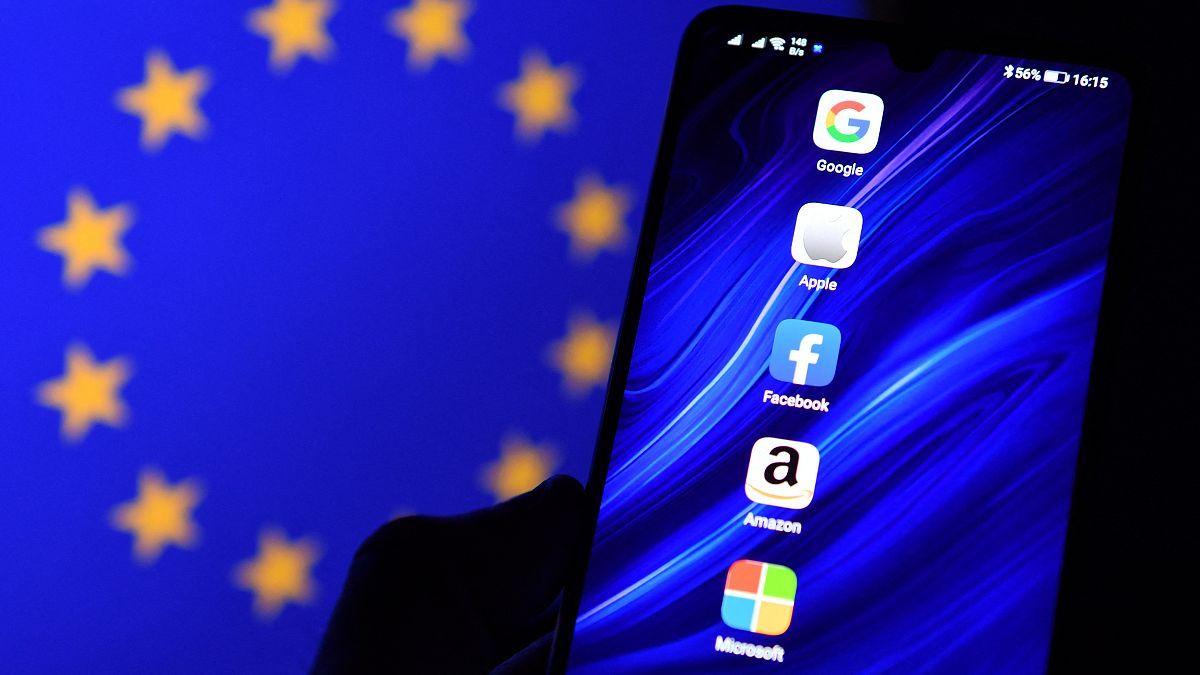The legislation is intended to make it easier for new players to enter the market more easily.
Brussels wants to curb the power of Big Tech companies in Europe by ensuring a higher degree of competition in the sector.
On Tuesday, MEPs debated the so-called Digital Markets Act, which aims to prevent so-called gatekeepers, like Google and Facebook, from abusing their market power by allowing new players to enter the market more easily.
MEPs also want to end anti-competitive practices within the sector, as Andreas Schwab MEP, the leading lawmaker on the issue said: "We have been seeing in the last 11 years that the European Commission in applying competition policy was not very successful because they were always running behind companies like Apple, Google or Facebook.
"And now, we have changed the burden of proof. Now, the Commission can talk to them even beforehand; before they enter new markets; before they introduce new business models and that will be very positive for consumers and users, because business models have to be fair and equitable and that was not the case in the past."
A gatekeeper is defined as the provider of so-called Core Platform Services, which includes search engines, app stores and social media networks.
The new rules would stop companies, such as Apple, from prohibiting or favouring a particular service, while also preventing interoperability between different, rival platforms.
They also wouldn't be able to stop businesses that use their services from using data collected on their own customers, like with a restaurant and reservations made through Google, for example.
If tech companies failed to comply with the new rules, then penalties of up to 10 percent of their turnover could be imposed.
And in the case of systematic rule violations, extraordinary remedies, like an obligation to sell part of the company's assets could apply.
Agustin Reyna, director of legal and economic affairs at the European Consumer Organisation (BEUC) says the measures are a positive step.
"You should be able to use the messaging service of your own choice in order to communicate with your peers, with your family and friends," Reyna said. "Another big improvement will be also that you will have the possibility to choose upfront which search engine you want to use, without Google search being pushed onto you constantly by Google."
According to Big Tech companies, the new rules will curb innovation, but Brussels is convinced that more rights for users will mean more democracy in a world that is increasingly interconnected.
The result of the vote is expected on Wednesday evening, after which the European Parliament will enter into negotiations with the European Council - on behalf of the 27 member states - to come to an agreement on the final text of the legislation.
